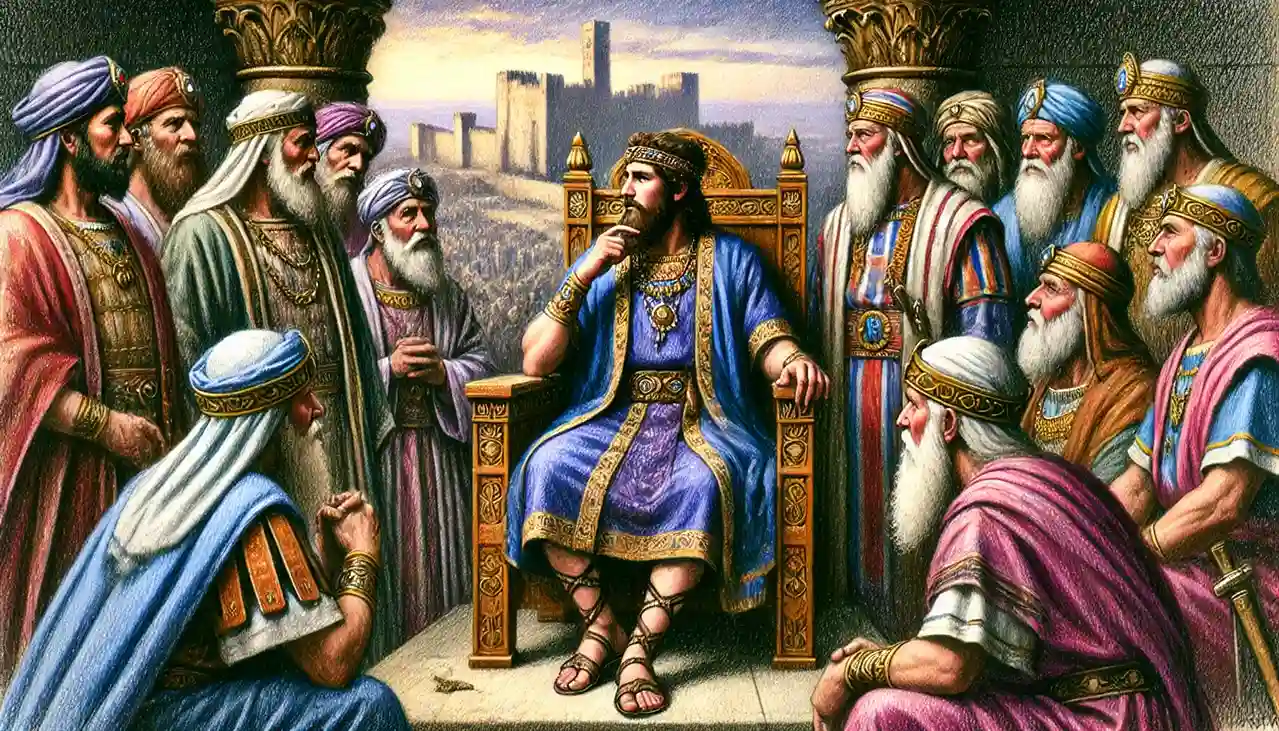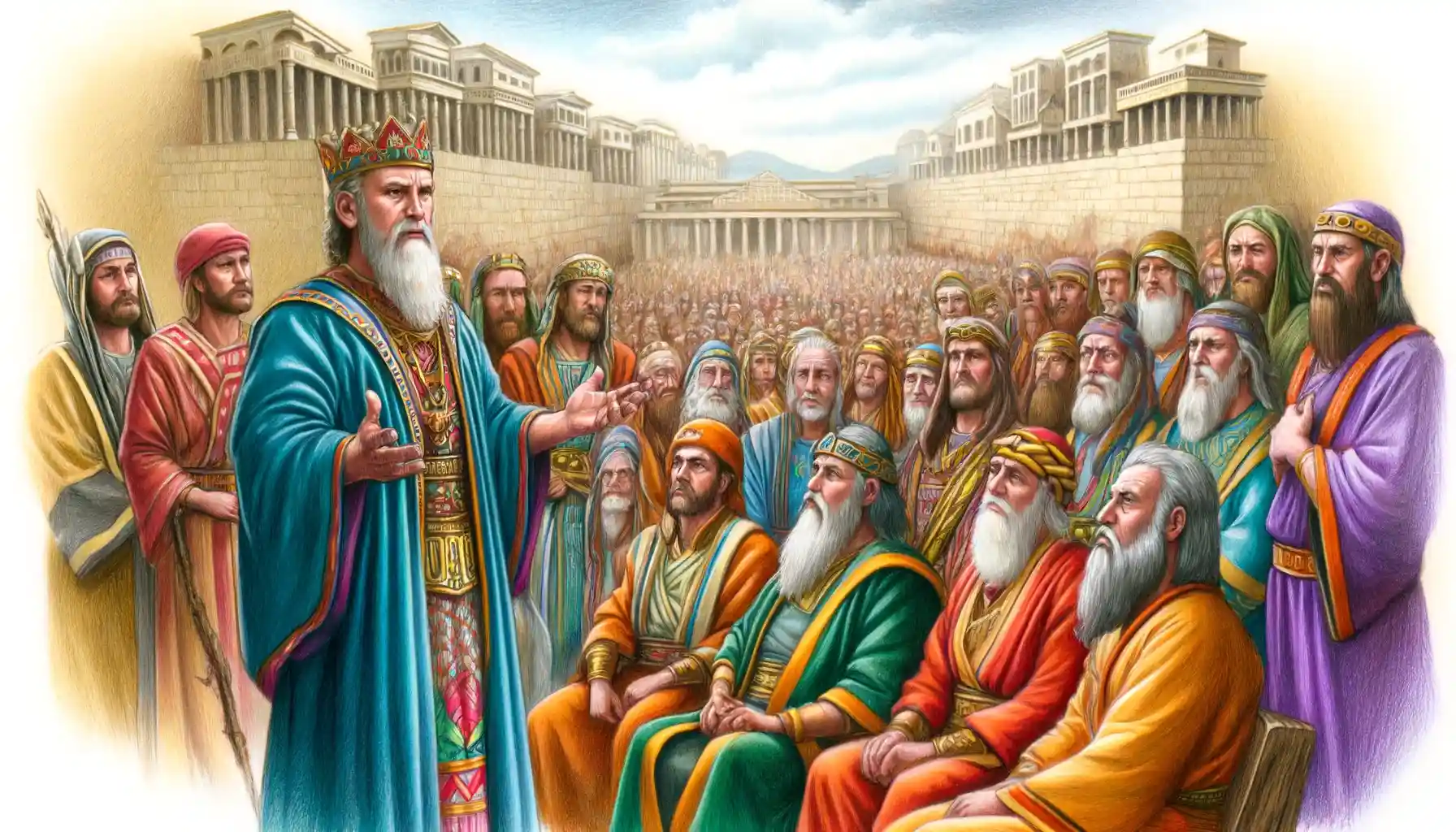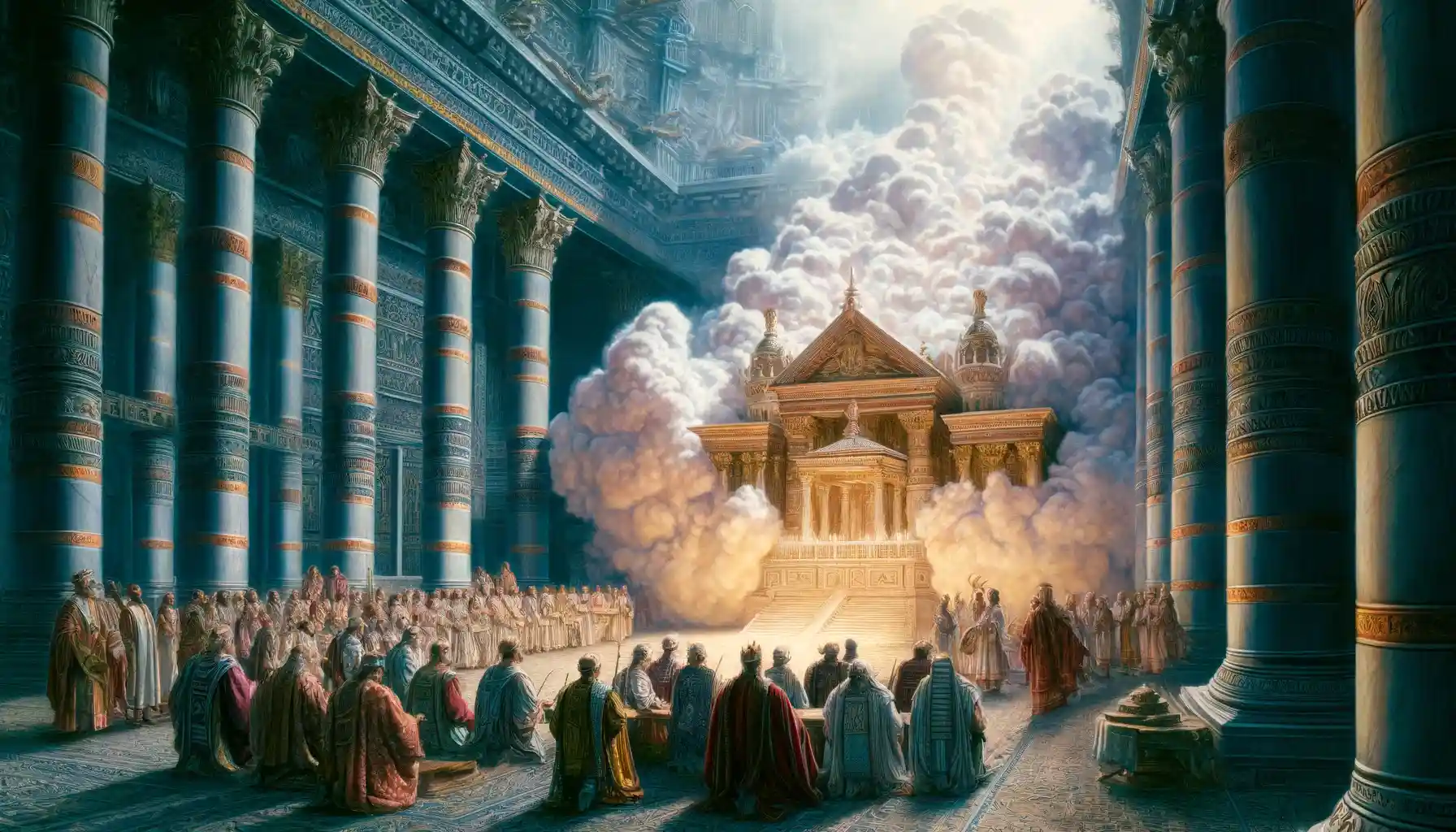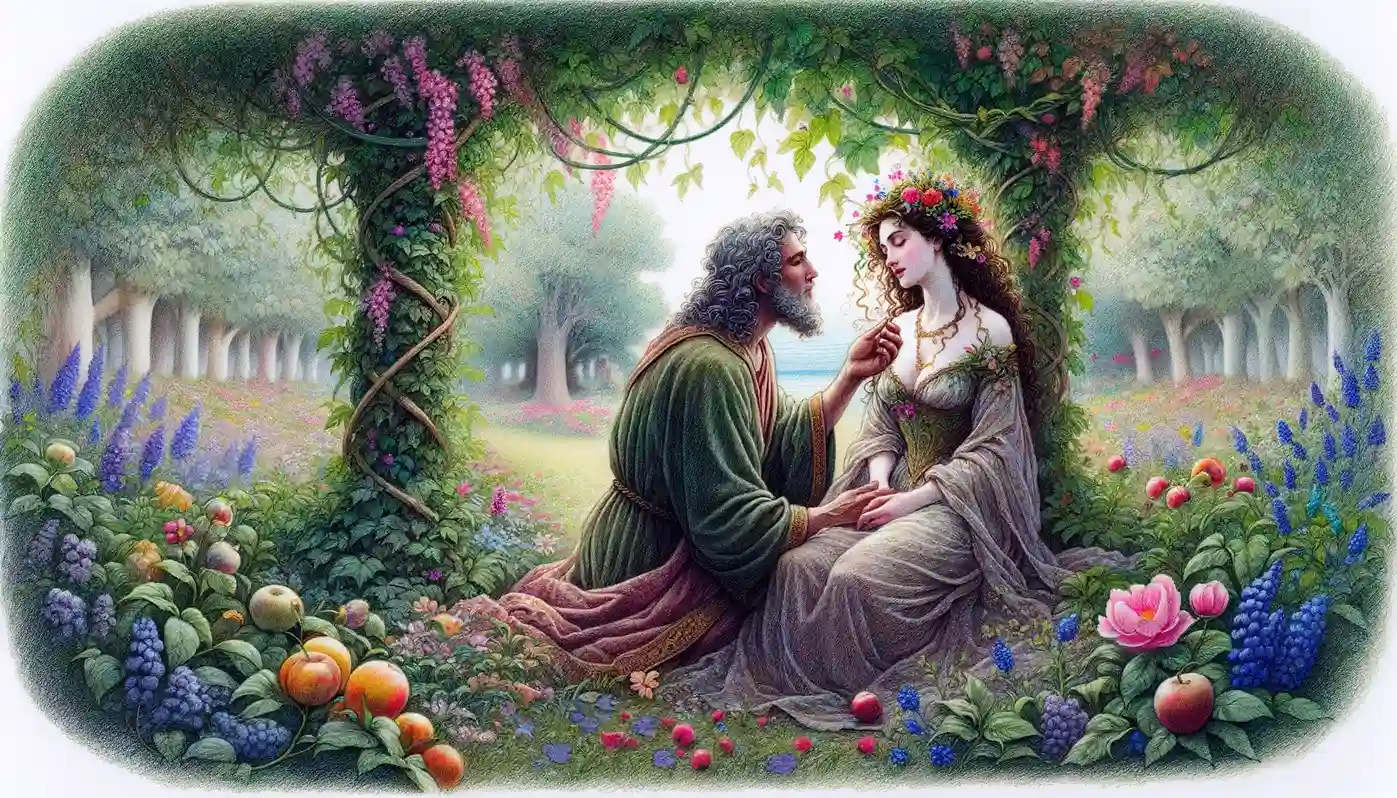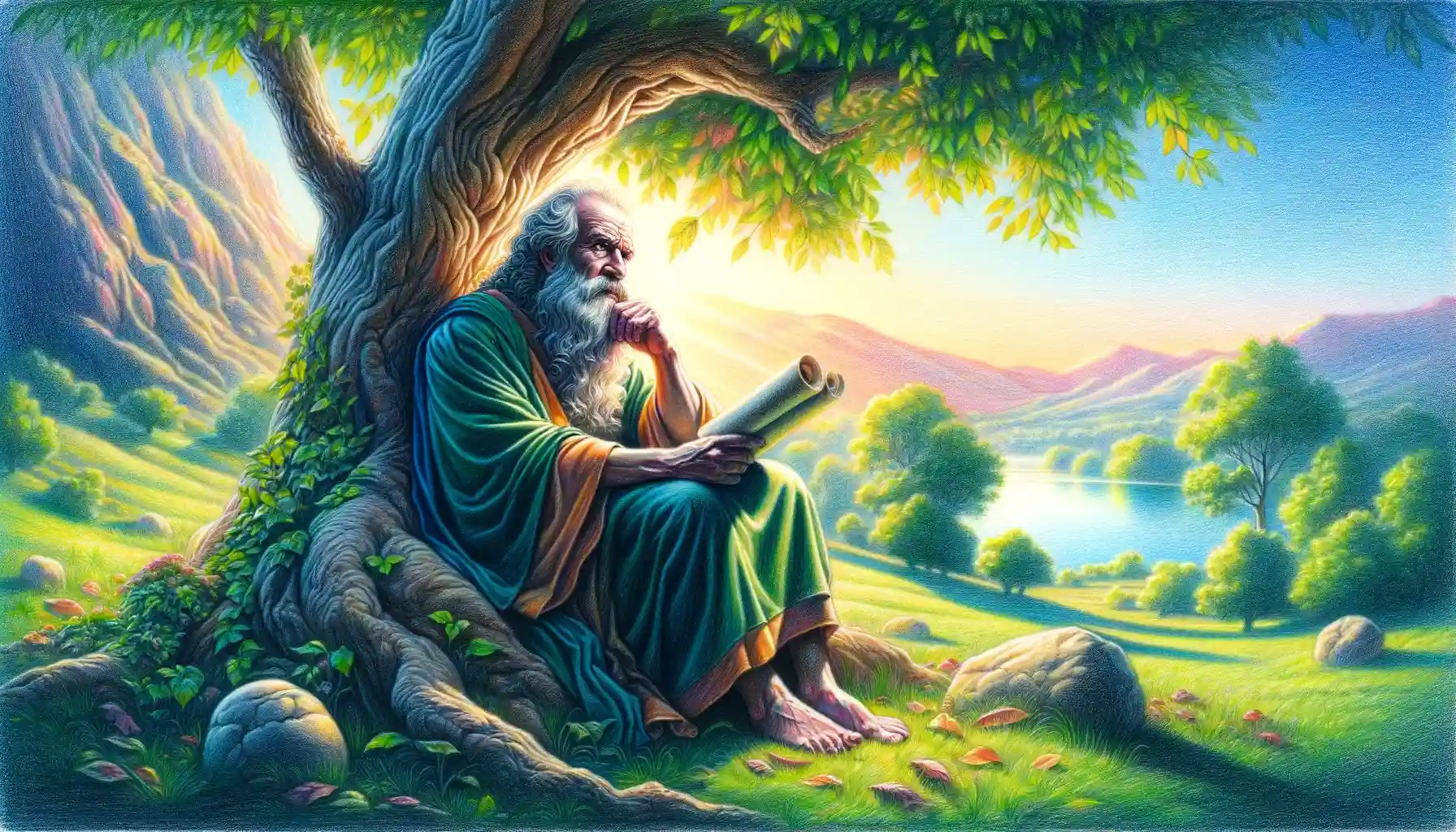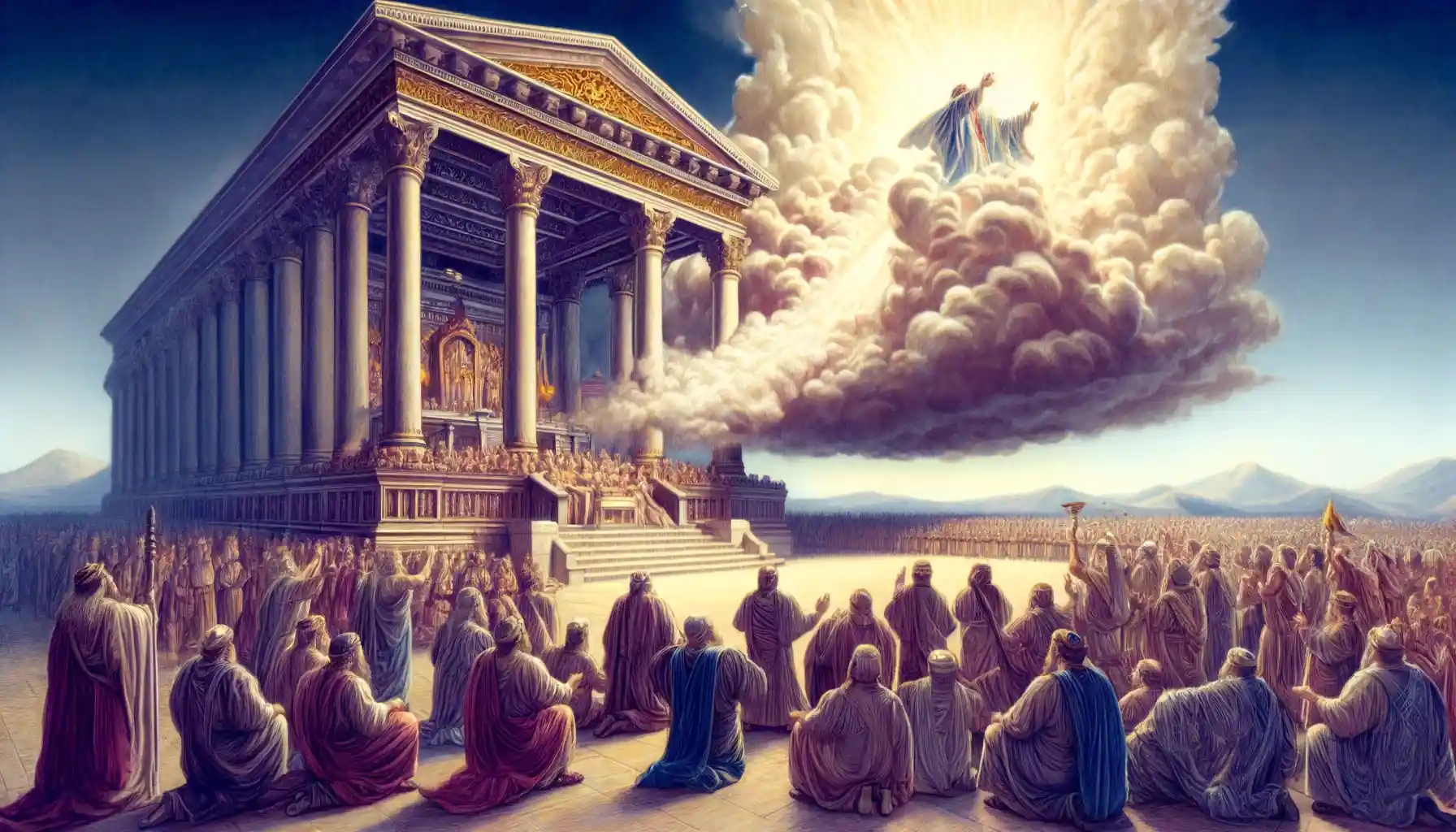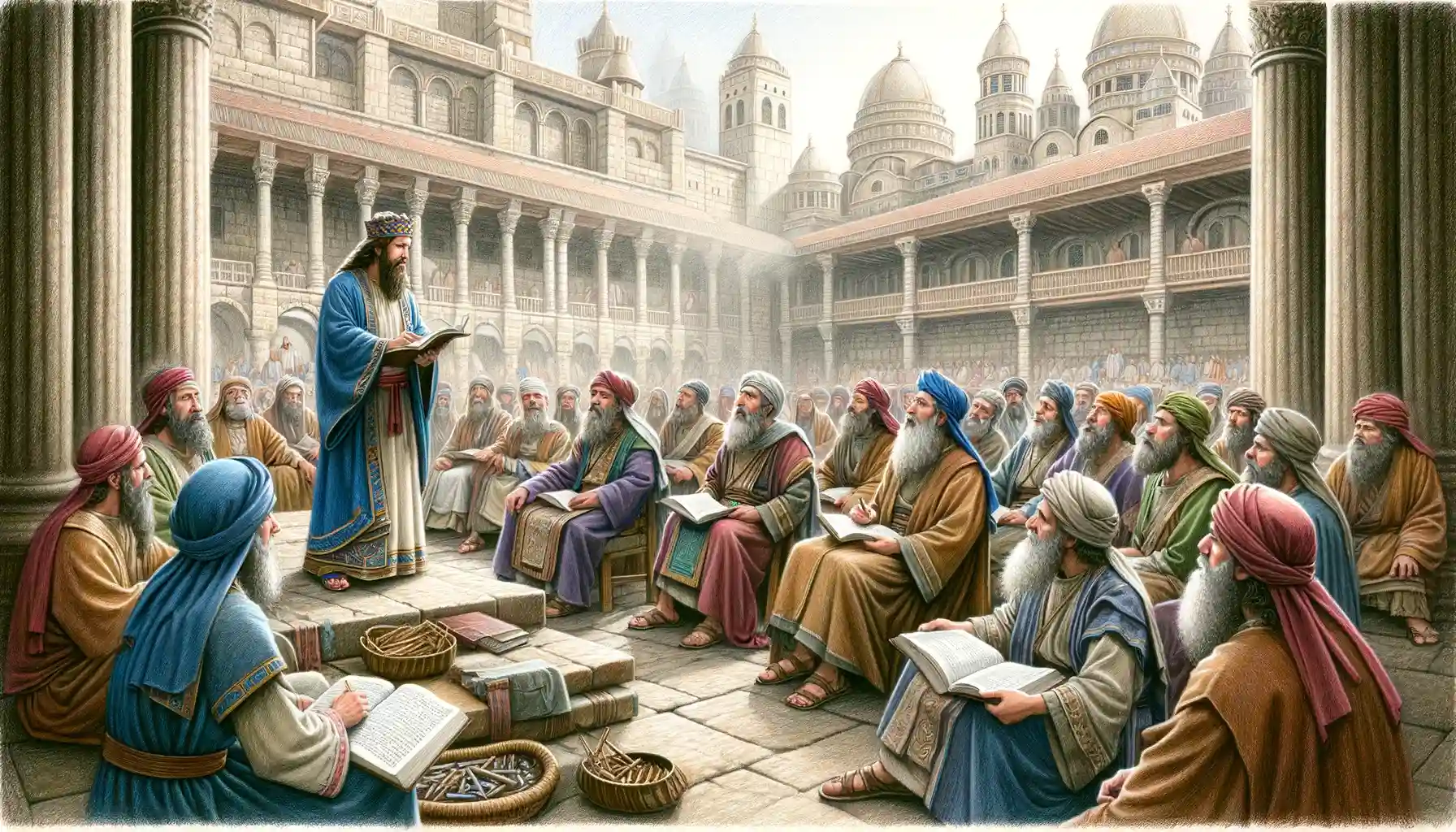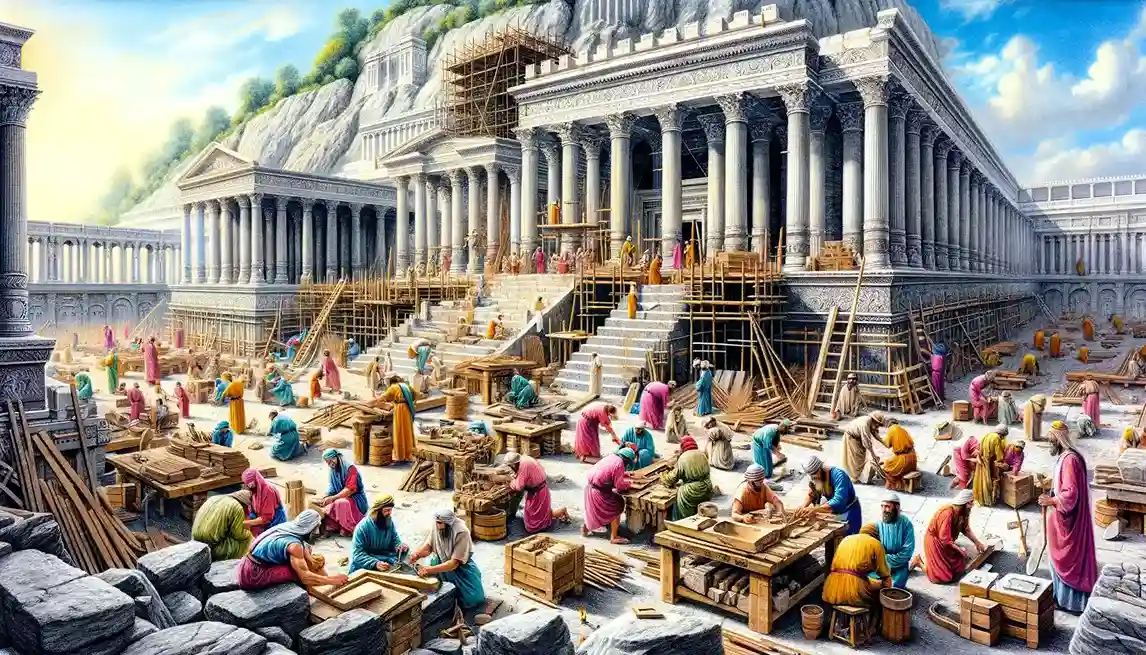Rehoboam, Solomon’s son, and David’s grandson, was the first king of the Kingdom of Judah whose harsh policies led to the division of the united kingdom of Israel, resulting in continual conflicts and invasions during his reign.
The Division of the Kingdom, as described in 1 Kings 12:1-24, details the split of the United Kingdom of Israel into the northern Kingdom of Israel and the southern Kingdom of Judah due to Rehoboam’s harsh leadership and the fulfillment of divine prophecy.
In 1 Kings 8:10-13, the dedication of Solomon’s Temple is highlighted by the filling of the sanctuary with a cloud, representing God’s glory, which halted the priests in their service, and Solomon’s acknowledgment of God’s presence in the temple, fulfilling divine promises.
Solomon, the son of David and Bathsheba, is a biblical figure known for his wisdom, wealth, the construction of the First Temple in Jerusalem, and his complex legacy involving both great achievements and serious missteps.
The Song of Solomon stands out in the biblical canon for its unabashed celebration of love, offering a poetic testament to the strength and beauty of this universal human experience.
Ecclesiastes provides a philosophical exploration that complements the more straightforward moral teachings found elsewhere in biblical texts, offering a meditative approach to understanding life’s deeper meanings.
2 Chronicles thus acts as a mirror reflecting the spiritual health of Judah through its leaders, offering lessons on the importance of righteous leadership and fidelity to divine commands.
1 Chronicles provides a unique perspective by reinterpreting Israel’s history to focus on theological and liturgical concerns, particularly relevant for the community returning from exile and rebuilding their identity.
1 Kings provides a rich narrative that underscores the complexities of human leadership and divine governance, offering profound lessons on the consequences of adhering to or straying from divine laws.

